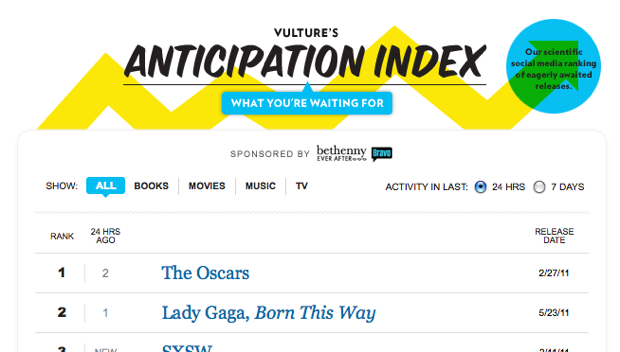New York Magazine's Vulture brings data to buzz, with its new "Anticipation Index," fueled by social media.

New York Magazine's website introduces a new feature today called the "Vulture Anticipation Index." It's a staple of cultural journalism to say what's got "buzz." But Vulture's insight is that actual data is better than something some reporter overheard a cocktail party. To that end, New York decided to get scientific about buzz. Using technology from Trendrr, which we've covered here before, the Vulture index compiles a regularly updated list of what people are talking about.
It's all about anticipation--once the event has passed, once the movie is out, once the concert has been performed, Vulture loses interest. What the thing was isn't of interest to the Anticipation Index, and is best left to those sorry, rearward-looking people known as critics. The Index only cares about what will be.
The index uses flames to denote sharply trending topics; arrows to denote ones precipitously falling off the radar of buzzworthiness. "We are thrilled to power Vulture's smart parsing of the social web, said Trendrr founder Mark Ghuneim in a release. "The Anticipation Index is pure info porn."
Majandra Delfino Maria Bello Jennifer Gareis Ashlee Simpson Donna Feldman
No comments:
Post a Comment